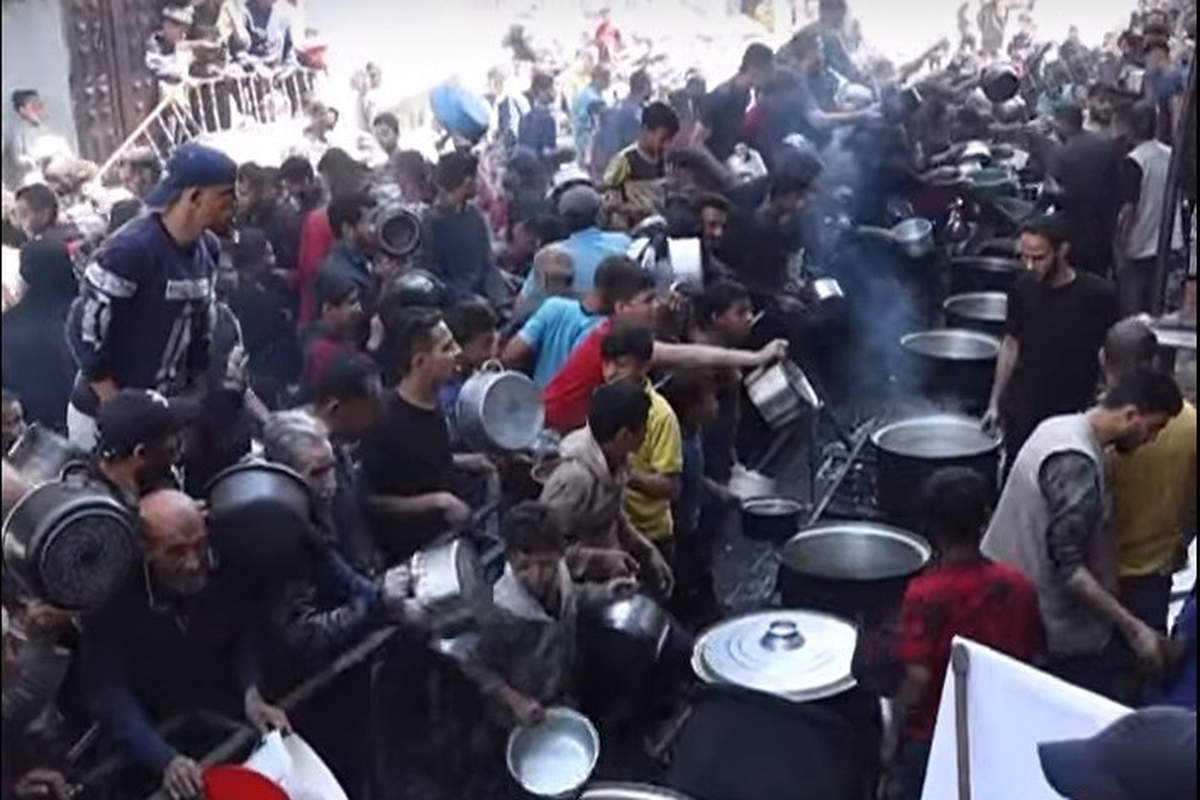UN denounces escalating violence and aid blockade in Gaza. NGOs firmly reject accusations that humanitarian aid is being diverted to Hamas, while more than 950 children are reported to have been killed in the last two months in the Palestinian enclave.
The humanitarian situation in Gaza continues to deteriorate dramatically after another night of Israeli bombardments claimed at least 64 more victims. Faced with the intensification of strikes and the total blockade of aid for over two months, UN officials are sounding the alarm and denouncing what they describe as “ethnic cleansing”.
Children, the first victims of the conflict
“The report of the deaths of at least 45 children in the Gaza Strip over the past two days is another devastating reminder that children in Gaza are the first to suffer,” said Edouard Beigbeder, Unicef’s Director for the Middle East and North Africa. He points out that the last 19 months have been particularly deadly for the youngest children.
According to recent reports, more than 950 children have lost their lives in Gaza in the last two months, and 25,000 since October 7, 2023. “From north to south, children are being killed and maimed in hospitals, schools turned into shelters, makeshift tents or in the arms of their parents,” added the Unicef official.
A situation described as “ethnic cleansing’
Given the intensity of the bombardments in densely populated areas, Volker Türk, United Nations High Commissioner for Human Rights, does not hesitate to describe the situation as ethnic cleansing. “This latest salvo of bombs, which is forcing populations to flee under the threat of increased attacks, the methodical destruction of entire neighborhoods and the denial of access to humanitarian aid indicate that there seems to be a desire to bring about a permanent demographic change in Gaza”, he denounced, calling for ‘an immediate halt to this madness’.
Humanitarian blockade a “cynical diversion
Jens Laerke, spokesman for the UN Office for Humanitarian Affairs, strongly criticized Israel’s “Plan B” for aid distribution. This plan would limit distribution to just four or five points, compared with 400 previously, calling the proposal a “cynical diversion”.
Trucks loaded with essential aid remain blocked at the border: “children’s shoes, stationery and toys, pasta, eggs, sweets, tents, water tanks, breast-feeding kits, breast-milk substitutes, shampoo and hand soap”, listed Mr. Laerke, before adding ironically: “what war can we pretend to wage with this?”
Hospitals under the bombs
The health situation is also catastrophic. WHO spokeswoman Margaret Harris reported that the European hospital in Khan Younès, “one of the best organized hospitals in Gaza”, had been bombed, forcing the evacuation of children with cancer. “If you have cancer and you don’t get treatment, you will suffer and eventually die,” she said.
According to the Gaza Ministry of Health, almost 53,000 people have been killed since the conflict began in October 2023. The WHO estimates that more than 10,000 patients, including 4,500 children, require urgent medical evacuation.
A call for a lasting political solution
UN Information Service spokeswoman Alessandra Vellucci reiterated the position of Secretary-General António Guterres: only a political solution can put an end to this crisis. “A lasting, long-term and equitable solution to the Israeli-Palestinian conflict must be found”, she declared, stressing that this solution included ‘two independent states living in peace, side by side’.

